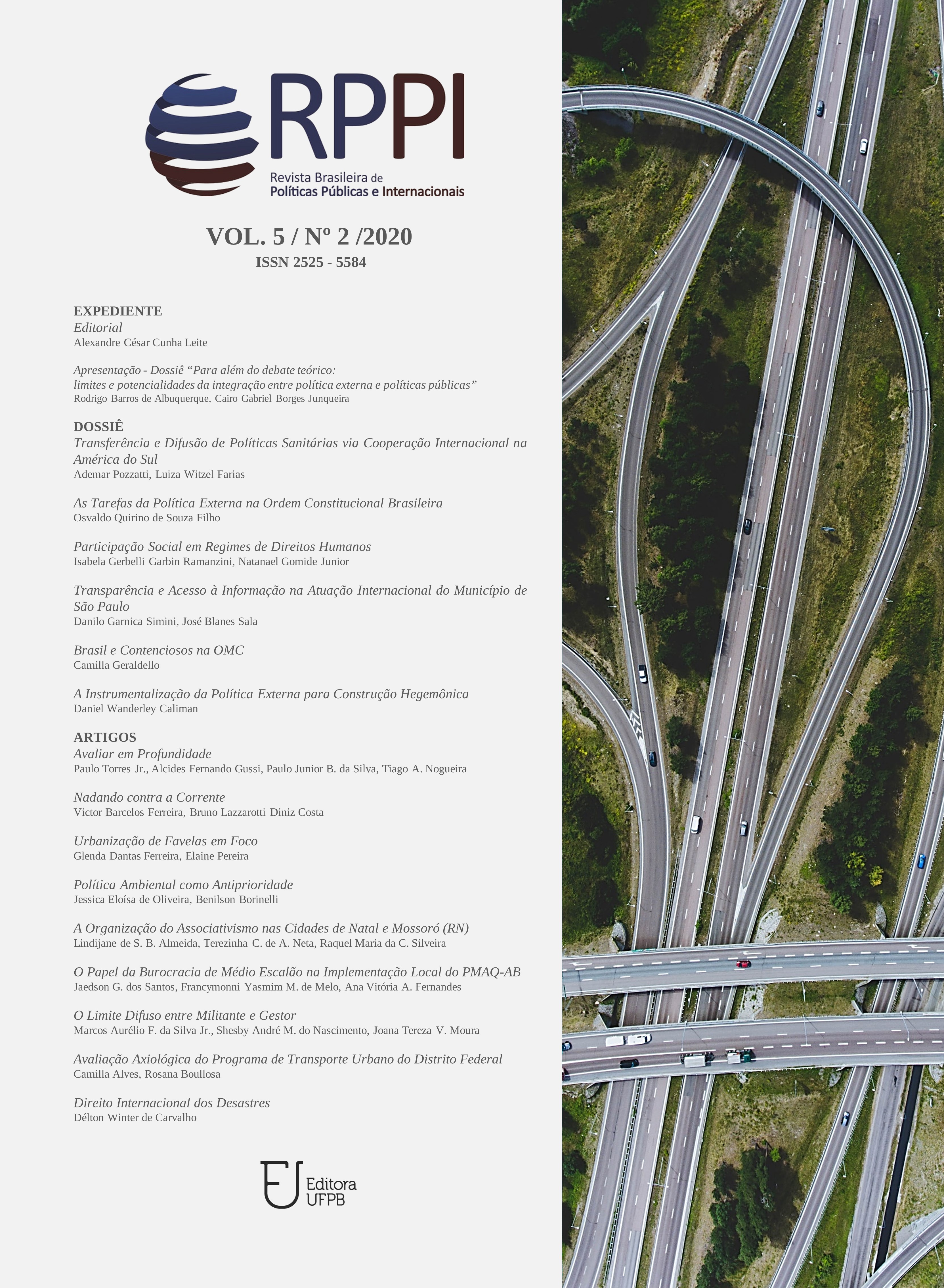International Disaster Law
from centrality in humanitarian response to the formation of international disaster risk reduction duty
DOI:
https://doi.org/10.22478/ufpb.2525-5584.2020v5n2.52677Keywords:
International Disaster Law, Disaster Risk Management, Humanitarian ResponseAbstract
Over the past few decades, humanity has experienced a significant increase in the occurrence of natural and anthropogenic disasters, mainly due to climate change and its effects. This situation, due to its several implications in the cosmopolitan society, ends up demanding a new look to the Law. This work explores the understanding of International Law concatenated with disaster risk management (DRM) and, therefore, the concept of Disaster Risk Reduction, through the lens of International Disaster Law (IDL - International Disaster Law). At the same time, if we analyze three important milestones of this movement, they are: Hyogo Action for Disaster Risk Reduction (2005-2015); Outline of Articles for the Protection of People in Disaster Events of the International Law Commission (2016); Sendai Action for Disaster Risk Reduction (2015-2030). The growing concern for the regulation of disaster prevention and response at the international level ends up producing standards that reflect and assist in the design of national strategies to reduce physical or anthropogenic impacts on their communities, their economies and their environment.
Downloads
Downloads
Published
Issue
Section
License
Autores que publicam nesta revista concordam com os seguintes termos:- Autores mantém os direitos autorais e concedem à revista o direito de primeira publicação, com o trabalho simultaneamente licenciado sob a Licença Creative Commons Attribution que permite o compartilhamento do trabalho com reconhecimento da autoria e publicação inicial nesta revista.
- Autores têm autorização para assumir contratos adicionais separadamente, para distribuição não-exclusiva da versão do trabalho publicada nesta revista (ex.: publicar em repositório institucional ou como capítulo de livro), com reconhecimento de autoria e publicação inicial nesta revista.
- Autores têm permissão e são estimulados a publicar e distribuir seu trabalho online (ex.: em repositórios institucionais ou na sua página pessoal) a qualquer ponto antes ou durante o processo editorial, já que isso pode gerar alterações produtivas, bem como aumentar o impacto e a citação do trabalho publicado (Veja O Efeito do Acesso Livre).




_.jpg)






.png)


.jpg)
_.png)
